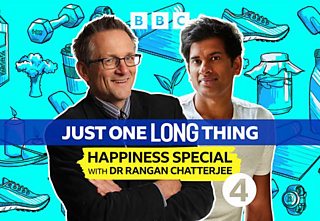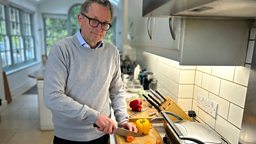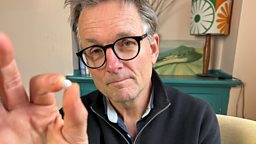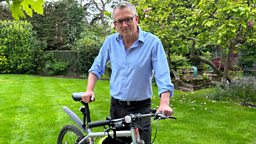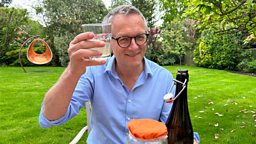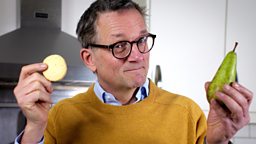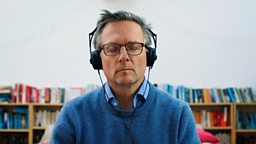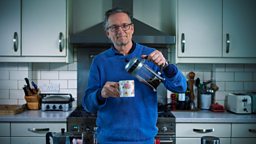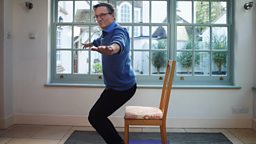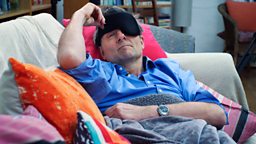How to be happy: Dr Rangan Chatterjee shares his five top tips
In a special edition of Just One Thing, Michael Mosley hears some useful tips for how to be happy from the GP, podcast host and author, Dr Rangan Chatterjee.
Dr Chatterjee explains how some basic lifestyle changes – such as talking to fellow commuters and reducing the time you spend on your phone – can help towards a more fulfilling life.

What is happiness?
Dr Chatterjee makes a distinction between “core happiness” and “junk happiness”. Junk happiness, he says, involves habits such as sugar, alcohol, shopping and social media. These are things are not a problem unless they are overdone and are mistaken for things that “are going to make us happy in the long term”.
Meanwhile, Dr Chatterjee believes the core happiness that we all want is built upon three principles: alignment, contentment and control. He describes alignment as being when who you are inside matches your public persona, and contentment is what we do to find calm. Finally, those who have a sense of control over their lives are, research suggests, happier, healthier, more prosperous and have better social relationships.
The following tips are designed to pull together all of these strands.
Tip 1: Talk to people you don’t know
This might not sound very appealing – especially to introverts – but research has shown that acknowledging strangers in some way, even with just a nod or a smile, tells our “sociometer” – the part of our brain that scans the world for threats – that “our world is safe, and there is order there”.

If you are prepared to go further and make conversation with people you don’t know, the benefits could surprise you! One experiment involving commuters found that those who started up a conversation felt a sense of wellbeing that lasted a whole day. Meanwhile, those who had been engaged in conversation by the commuters were overwhelmingly positive about their experience – a finding that was recorded in various cities, including London!
Tip 2: Use “social friction” as free therapy
This tip is about “reframing” everyday, negative experiences to avoid getting stressed by the actions of other people. One example might be putting yourself in the shoes of a driver who cuts you up on the way to work. It’s easy to get annoyed in these situations but instead, try to imagine what events or factors in that driver’s life might have caused them to behave like that. Perhaps they are late for work and fear losing their job or maybe their child is unwell and they are exhausted.
Dr Chatterjee says reframing potentially stressful situations in this way makes life calmer and likens it to working out in a “social gym” – building emotional resilience just like we would build muscle at a real gym.
Tip 3: Write your deathbed diary and apply it to your everyday life
It might sound morbid but the goal of this exercise is to help you live intentionally, making time for the things that are important to you.
Dr Chatterjee suggests thinking of three things you want to have achieved in your lifetime. These might include spending quality time with your family and having time to engage in your passions. Then create three “happiness habits” which help you achieve these things. For example, making sure you have five evening meals with your family each week.
Tip 4: Make fewer decisions
Choice is generally regarded as a good thing but sometimes it can be overwhelming, whether that’s deciding what to watch, what to eat or what to buy. Too much choice, Dr Chatterjee believes, adds to our daily build-up of “micro stress doses”. When we reach our personal stress threshold, “that’s when things go wrong: that’s when our back goes, that’s when we fall out with our partner.”
Too much choice adds to our daily build-up of “micro stress doses”.
The key to making fewer decisions, says Chatterjee, is “choose when it matters; don’t choose when it doesn’t.” Two well-known examples of this are Barack Obama and Mark Zuckerberg who would often wear the same outfits every day “to save cognitive capacity for the big decisions”.
Tip 5: Think of your phone as a person and change your relationship with it
Our preoccupation with our phones is, as Dr Chatterjee puts it, “changing the fabric of our relationships” and is a hard habit to break. To be more present, he suggests treating our phones as if they are toxic people and then adopting various good practices such as not using phones at mealtimes, designating areas of the house as phone-free and turning off app notifications.
The pay-off for these kinds of actions could be huge. Chatterjee cites research shared with him by Yale psychology professor Laurie Santos which suggests staying off social media could have “a bigger effect on your happiness than earning $100,000 a year or marrying the love of your life”.
More from 91�ȱ� Radio 4
-
![]()
How you can learn to be happier
Life lessons of happiness to learn how you can hack your happiness back.
-
![]()
When are you happiest in life?
Mathematician Hannah Fry delves into the human predisposition for happiness.
-
![]()
Positive Thinking: Searching for lasting happiness
Meet the innovators bidding to change our world.
-
![]()
Best Medicine: Laughter, Other People, Inclusion, Tissue Engineering
Drumming rats, Henry VIII's disabilities, laughter and a world-first heart operation.
